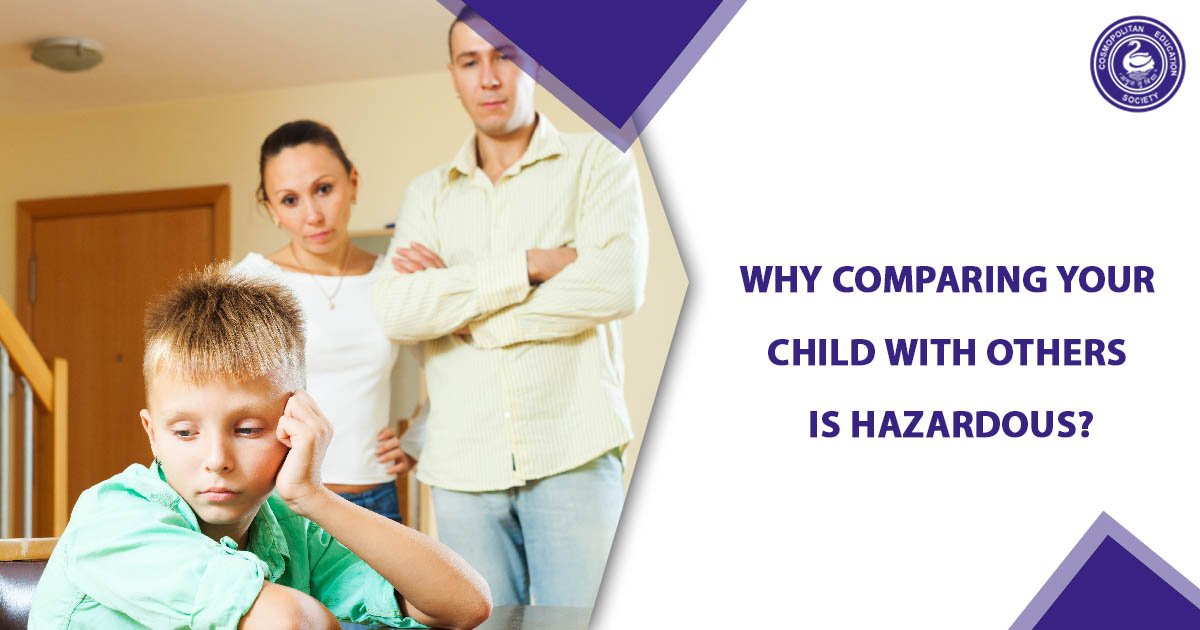
Why comparing your child with others is hazardous?
In today’s competitive world, it’s common for parents to compare their children with others. While it may seem like a natural instinct, constantly comparing your child with their peers can have detrimental effects on their well-being and self-esteem.
This blog delves into the drawbacks of such comparisons
1. Diminishes Self-Esteem and Confidence:
One of the most significant cons of comparing your child with others is the potential damage it can inflict on their self-esteem and confidence. When parents constantly compare their child’s achievements, appearance, or abilities to those of other kids, it sends a message that they are not good enough. This can lead to feelings of being unaccepted, lowers self-esteem, and a lack of confidence. Instead of nurturing their unique talents and qualities, children may become dull while they seek approval and live up to unrealistic expectations.
2. Fosters Unhealthy Competition:
Comparisons breed competition, but when it comes to children, it can become unhealthy and counterproductive. Children are naturally curious and thrive in an environment where they can explore their interests and learn at their own pace. When they are constantly pitted against their peers, the focus shifts from personal growth to outperforming others. This burden can lead to not only stress, anxiety, but also a fear of failure. Moreover, it hampers the development of important values such as collaboration, empathy, and kindness, as the emphasis shifts solely towards winning and being better than others.
3. Suppresses Individuality:
Every child is unique, with their own set of strengths, weaknesses, and interests. Comparisons tend to overlook these individual qualities and instead create a narrow definition of success. By constantly putting our children down against their peers, we fail to appreciate and nurture their unique abilities. Each child has different passions and talents, and their success should be measured by their personal growth and fulfillment, rather than their ability to match someone else’s achievements. Embracing their individuality helps children develop a strong sense of identity, build self-awareness, and explore their true potential.
4. Strains Relationships and Resentment:
Comparisons can strain relationships, not only between parents and children but also among siblings and friends. Constantly being compared to others can create resentment and hostility among children. It can breed feelings of jealousy, rivalry, and a sense of being unappreciated. Additionally, it can also harm the relationship between parents and their children, as children may feel that their worth is solely determined by their ability to match up to others’ expectations.
Value takeaway:
It’s crucial for parents to create a supportive and nurturing environment where each child feels valued for who they are, rather than for how they compare to others.
Food for Thought:
Comparing your child with others can have irreparable consequences. It diminishes self-esteem, fosters unhealthy competition, undermines individuality, and strains relationships. In fact, it’s essential to celebrate each child’s success, unique qualities, support their personal growth, and cultivate an environment that encourages self-acceptance and confidence.
At Harshad Valia International School, the best international CBSE school in Mumbai, we put each child’s welfare first and steer clear of comparisons. Individual ability is nurtured, unique qualities are celebrated, and inclusivity and self-acceptance are promoted. This creates a pleasant learning environment where children thrive academically, emotionally, and socially, achieving their full potential in an empowering and collaborative environment.
